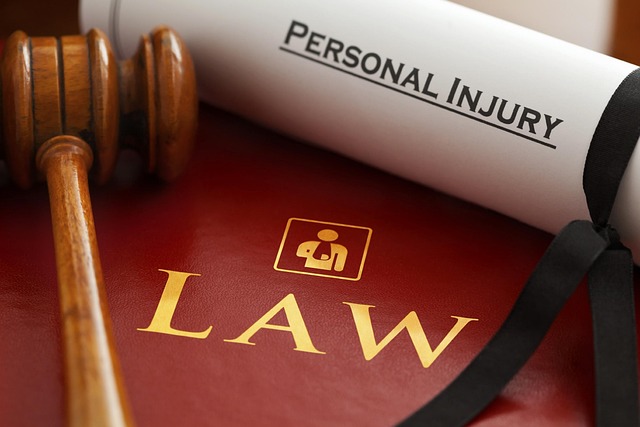Property fraud scams involving co-ownership are prevalent, with criminals manipulating transactions and exploiting vulnerabilities. Victims face complex legal journeys, needing to identify red flags and take action. Co-ownership disputes offer civil solutions like ADR, which are cost-effective and efficient. Meticulous evidence collection is key in financial fraud cases, with specialists ensuring proper documentation security. Legal options include settlements, civil lawsuits, or criminal charges, seeking justice while minimizing losses. Mediation and arbitration provide non-adversarial methods for dispute resolution, fostering communication and mutually beneficial solutions. Strategic legal action punishes criminals and prevents future scams, with successful outcomes based on evidence and arguments.
Financial fraud, particularly in real estate co-ownership property disputes, is a growing concern. This article delves into the intricate world of fraud detection, offering a comprehensive guide for navigating these complex issues. We explore common scams plaguing the industry and analyze the legal framework surrounding co-ownership disputes. Key strategies are presented for evidence collection, from digital forensics to documentation. Additionally, mediation, arbitration, and strategic legal actions are discussed as powerful tools against perpetrators, providing valuable insights into effective fraud prevention and resolution.
- Understanding Common Property Fraud Scams
- Legal Framework for Co-Ownership Disputes
- Evidence Collection in Real Estate Frauds
- Exploring Mediation and Arbitration Options
- Strategic Legal Action Against Perpetrators
Understanding Common Property Fraud Scams
Property fraud scams involving co-ownership are prevalent across the country and can have devastating financial implications for those caught up in them. These schemes often involve a person or group posing as legitimate co-owners, manipulating transactions, and exploiting vulnerabilities to gain control of assets. Common tactics include false claims of shared ownership, forged documents, and manipulation of vulnerable individuals into transferring property rights. Understanding these patterns is crucial for identifying potential red flags and taking appropriate legal action.
Victims of such frauds may face a complex landscape when exploring their legal options. From fighting for the complete dismissal of all charges to navigating the intricate processes of co-ownership disputes, seeking professional advice from experts in white collar and economic crimes is essential. By understanding the nuances of these cases, individuals can better protect themselves and pursue justice, ensuring their rights and interests are upheld.
Legal Framework for Co-Ownership Disputes
In cases of co-ownership property disputes, a robust legal framework provides various avenues for resolution. When co-owners disagree on the management or disposition of jointly held property, they can often resolve their differences through alternative dispute resolution (ADR) methods such as mediation or arbitration. These processes offer a more cost-effective and efficient alternative to lengthy jury trials, which are typically reserved for complex cases involving significant legal and factual issues.
The general criminal defense strategies may not be applicable in co-ownership disputes, as these typically involve civil matters centered around property rights rather than criminal charges. The respective business laws and regulations govern these cases, ensuring a structured approach to resolving conflicts over shared assets. This legal framework allows for a balanced resolution, considering the rights and interests of all parties involved while minimizing the potential for protracted litigation.
Evidence Collection in Real Estate Frauds
In financial fraud cases, especially real estate scams involving co-ownership property disputes, meticulous evidence collection is paramount. This includes gathering all relevant documents such as contracts, titles, and financial records to build a comprehensive case. When a dispute arises between co-owners, it’s crucial to establish the nature of their agreement and any potential misrepresentations or alterations in legal documentation. Legal professionals with expertise in white-collar defense can play a pivotal role here, ensuring that all evidence is properly secured and interpreted, leaving no room for manipulation or forgery.
Understanding the intricate web of property ownership and financial transactions requires a keen eye for detail. For his clients facing such challenges, it’s imperative to explore all legal options. This might involve negotiating settlements, pursuing civil lawsuits, or even criminal charges against those involved in fraudulent activities. The goal is to protect the interests of corporate and individual clients alike, ensuring justice and minimizing financial losses in these complex real estate fraud cases.
Exploring Mediation and Arbitration Options
In the event of a co-ownership property dispute, individuals often seek legal options that can help resolve their differences outside of traditional litigation. Mediation and arbitration stand out as attractive alternatives, offering a more collaborative and efficient approach to conflict resolution. These processes allow parties to maintain control over the outcome while potentially saving time and costs associated with lengthy court battles.
When it comes to co-ownership disputes, mediation facilitates open dialogue between involved parties, encouraging active participation in finding mutually agreeable solutions. Arbitration, on the other hand, provides a more structured framework where an impartial third party, often an expert in real estate or white-collar defense, listens to both sides and makes a binding decision. Across the country, these non-adversarial methods have gained popularity among philanthropic and political communities seeking constructive ways to navigate property-related conflicts without escalating into extensive legal confrontations.
Strategic Legal Action Against Perpetrators
When it comes to financial fraud, strategic legal action is paramount to not only penalize perpetrators but also deter future incidents. In cases involving co-ownership property disputes, victims have several legal options at their disposal. These range from civil lawsuits aimed at recovering losses to criminal proceedings that can result in significant penalties, including jail time and fines. An unprecedented track record of successful prosecutions across the country underscores the effectiveness of these measures.
Moreover, the involvement of legal professionals with expertise in financial fraud cases is crucial. They can navigate complex regulations and laws, ensuring that justice is served. In some instances, a complete dismissal of all charges may be achieved if the prosecution fails to prove the accused’s guilt beyond a reasonable doubt. However, this is not a common outcome, as each case is unique and depends on the strength of evidence and legal arguments presented.
Financial fraud, particularly in real estate co-ownership property disputes, is a complex issue that requires a multi-faceted approach. By understanding common scams, navigating the legal framework, and employing evidence collection methods, individuals can protect their investments. Exploring alternative dispute resolution options like mediation and arbitration provides efficient, cost-effective solutions. Moreover, strategic legal action against perpetrators serves as a deterrent and ensures justice. In light of these measures, individuals should remain vigilant and proactive in safeguarding their financial interests.






